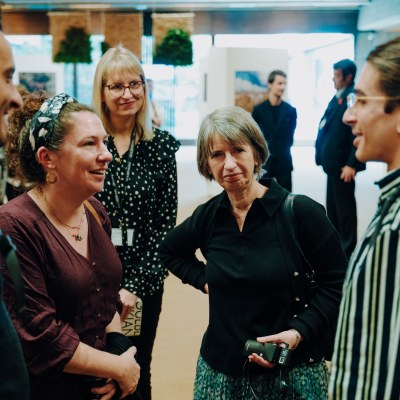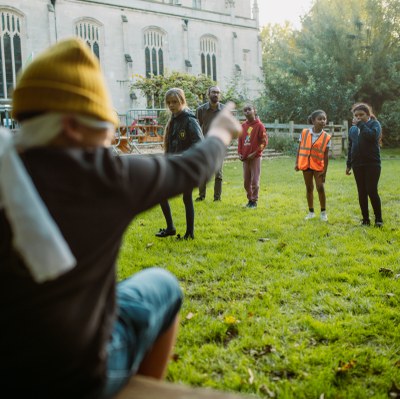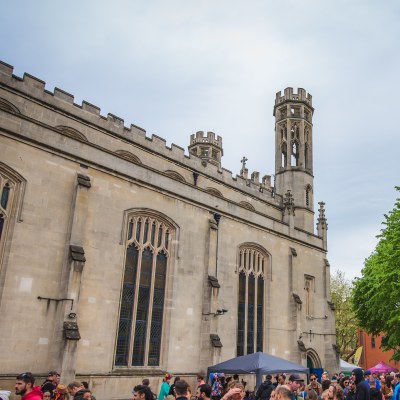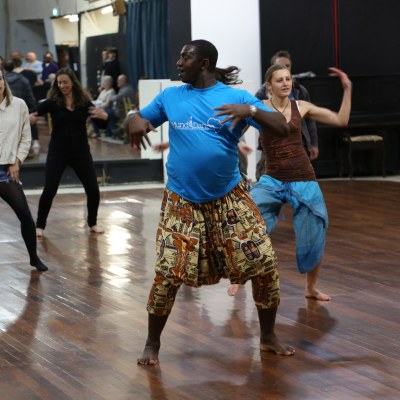In Conversation: What is a Citizens' Assembly for Culture?
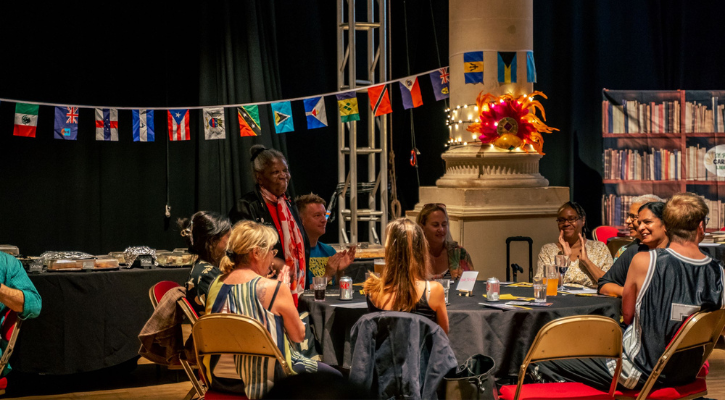
Citizens for Culture is ground-breaking initiative bringing together people from across the region to meet with creative practitioners, cultural providers and decision-makers to create a Cultural Plan for the region.
Delivered in with St Pauls Carnival, Citizens In Power and the West of England Combined Authority, the project will host the first region wide Citizens’ Assembly for Culture in 2025.
We caught up with Producer, Anjali Prashar-Savoie and Project Manager, David Jubb, to ask some key questions about the project - what is it, why we’re running it and what we hope to achieve.
David and Anjali - what is a Citizens Assembly for Culture all about?
A Citizens' Assembly brings people together to learn about and deliberate issues and together, reach conclusions about what they think should happen.
Our project, Citizens for Culture, will invite citizens from areas in the West of England to create a set recommendations for a Cultural Plan for the West of England Combined Authority Region.
Taking place across multiple sessions citizens will explore how creative opportunities can be inclusive, accessible and representative of the many people living across the region. They will immerse themselves in creative and cultural activities, hear from experts who will share their knowledge about creativity and culture and then, working together, develop recommendations for a Cultural Plan to be delivered across three regions in the West of England.
Following the Assembly, citizens will oversee the implementation of the Cultural Plan with support from funders, local authorities, organisations and individuals, all working together to deliver these citizen-led recommendations.
What is the story so far?
"By using this democratic approach we will hope to inform future cultural policies and priorities for the West of England, creating a legacy that will serve as a model for the UK's continually evolving arts and cultural landscape."
The project was created in response to the partners wanting to explore how using a Citizens Assembly model - a deliberative, democratic and people-centred approach - could reimagine what a cultural offer could look like in the South West.
Each partner brings their own skills to the project - St Pauls' Carnival CEO, LaToyah Mcallister-Jones brings her wealth of expertise and experience in leading and facilitating Assemblies.
Using their expertise in citizen-led decision making, Citizens In Power have been securing support for each stage of the project, from the initial research phase in 2022 to the delivery of the final Assembly in 2025 and Trinity's CEO, Emma Harvey, brings over 20yrs of expertise of using arts and culture as a tool for civic participation.
Together, we delivered a research phase for the Assembly, where the principles for the design were shaped by a group of people from across the region, chosen through a random selection process.
Based on these design principles, the Assembly was further developed by people working in the cultural sector. The research phase provided the building blocks for the framework for the planned 2025 Assembly.
Why are you running Citizens for Culture?
The Assembly aims to help shape a regional cultural offer that is relevant, accessible and reflective of diverse voices and perspectives. By co-creating cultural leadership and decision-making with the people who live, work and stay in our region, we hope to build a more democratic approach that will help shape the future direction of culture in the West of England.
What do you mean by “citizens” and “culture”?
When we say citizens, we simply mean the people who live, work or stay in a place.
We feel that the Assembly is best placed to arrive at its practical definition of culture - one that best serves the creation of the regional Cultural Plans. We want to ensure the people taking part can participate fully and that thoughtful conversations happen that aid in guiding this. By allowing the Assembly process to refine this definition, we hope to ensure that the Cultural Plan has a clear focus and achievable goals, while still acknowledging the richness of cultural diversity across the regions.
"By using this (a Citizens' Assembly model) democratic approach we hope to inform future cultural policies and priorities for the West of England, creating a legacy that will serve as a model for the UK's continually evolving arts and cultural landscape."
How do people get involved?
Citizens will be invited to participate in the Assembly through a sortition process, or democratic lottery, rather than by election or appointment. This ensures that the selection is impartial and includes a wide representation of community voices from across the region.
We're continuing to invite people and organisations working in the cultural sector to help shape plans for the 2025 Assembly.
If this sounds like you, we’d love to hear from you - feel free to get in touch with the Citizens’ Assembly producer, Anjali Prashar-Savoie, at anjali@trinitybristol.org.uk to arrange a chat.
Find out more about Citizens for Culture:
-
Read LaToyah McAllister-Jones opinion piece on her experiences of facilitating democratic decision-making in the second part of this series about civic participation
-
Read Edson Burton’s opinion piece of why voting matters in the second part of this series about civic participation
-
Email Imogen@trinitybristol.org.uk to join our Citizens For Culture mailing list
Citizens for Culture is an initiative from St Paul Carnival CIC, Trinity Community Arts, Citizens in Power and West of England Combined Authority and is supported through funding by Arts Council England, Paul Hamlyn Foundation and Calouste Gulbenkian Foundation (UK Branch).





